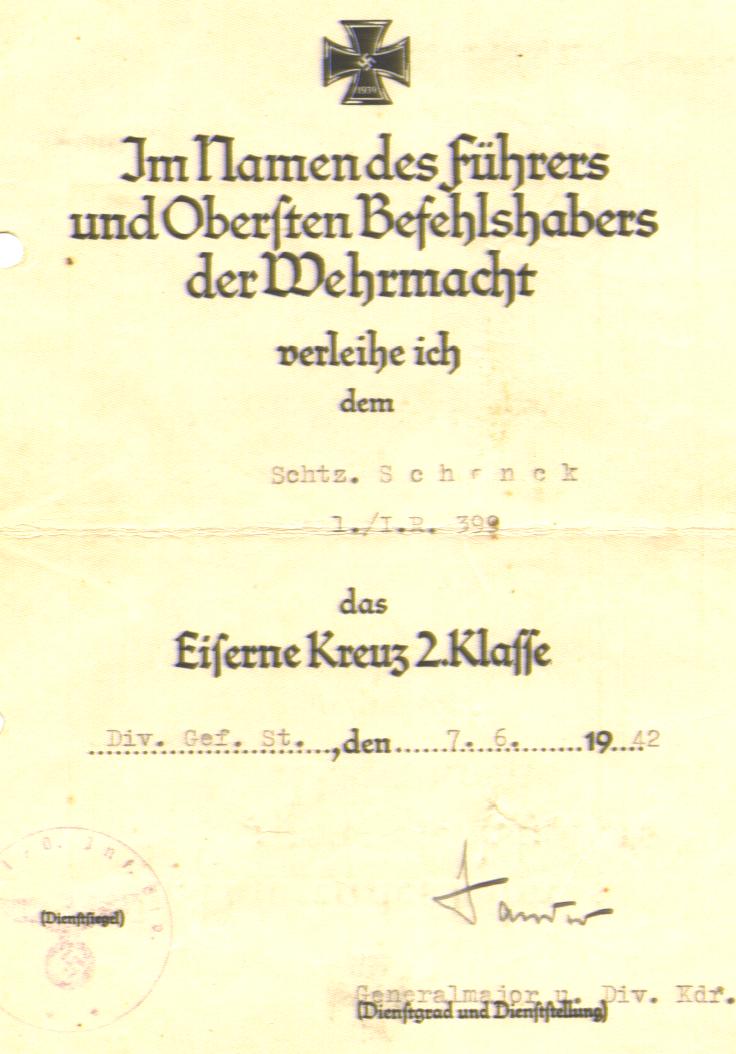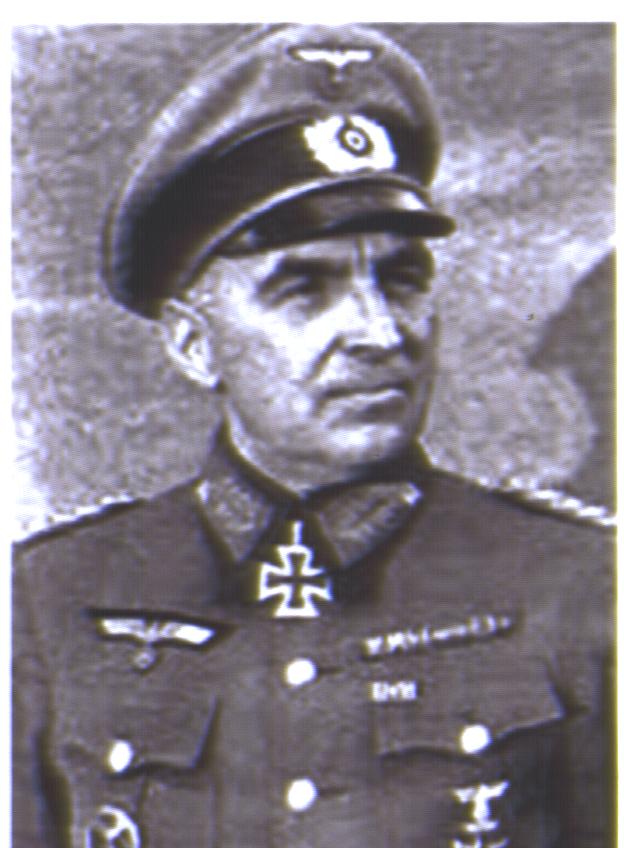

|
~SOLD~SANDER Erwin
Generalleutnant Sander, Erwin
Born March 5, 1892, Berlin-Neukölln
† December 7, 1962, Bamberg
Erwin Sander joined after his graduation on October 1, 1910 as a Fahnenjunker in the Royal Prussian Army. The son of a merchant came to the 1st Poznan Field Artillery Regiment No. 20. In this he was promoted on May 23, 1911 to ensign. After attending the war school, he was promoted to lieutenant on May 22, 1912. His patent was dated to 18 May 1910. As such, he was now used as a battery officer in the 1st Poznan Field Artillery Regiment No. 20. On 1 October 1912 he was then transferred to the 3rd East Prussian Field Artillery Regiment No. 79. Also with this he was used again as a battery officer. As such, he then moved to the beginning of World War I in the summer of 1914 in the field. In 1915 he was appointed the leader of the motor vehicle gun of the 8th Army. As such, he was promoted to lieutenant on October 18, 1915. On November 3, 1916 he was then transferred to the Reserve Field Artillery Regiment No. 10. In this he was then initially used as the leader of the 8th battery. Later he took over the 7th battery. On October 8, 1918, he was transferred to the Field Artillery-Fahnenjunkerschule. In the First World War, in addition to the Knight's Cross of the Royal Prussian House Order of Hohenzollern with swords and two Iron Crosses awarded him some other awards. At the end of January 1919 he took over the Flak battery from the 3rd Guards Field Artillery Regiment. At the beginning of July 1919 he was then commanded for the next six months to the Security Police Berlin. In August 1919 he was then re-budgeted to the 3rd East Prussian Field Artillery Regiment No. 79. During this time he was promoted to captain on September 15, 1919. On January 31, 1920, he was adopted from the Reichsheer.
He joined the police in Berlin. On May 1, 1920 he was promoted to captain of the police. In early 1928 he was then commanded to police school oak. From 1 July 1929 he was then a member of the police school Brandenburg. There he was promoted on 11 August 1929 to the Major of the police. On 1 October 1929 he was transferred as such to the police administration Berlin. On July 15, 1935, he was then transferred to the army during the expansion of the Reichswehr to the Wehrmacht as a lieutenant colonel. His seniority was set to April 1, 1935. From October 15, 1935, he was then the staff of the 1st Panzer Division in Weimar. On May 19, 1936, he was then commanded to the 1st Division of the Artillery Regiment 73 also in Weimar. On October 6, 1936, he was then appointed commander of the II Division of the Artillery Regiment 74 in Bamberg. On October 1, 1937, he was promoted to colonel. As such, he left his department only a few days later and was transferred to the regimental staff of the Artillery Regiment 74 . There he received his briefing as a regimental commander. On November 10, 1938, he was then appointed commander of the Artillery Regiment 80 in Cottbus. Also in the mobilization for World War II in the summer of 1939, he retained his command. In the 3rd Light Division he led his regiment in the Polish campaign. On October 25, 1939, he gave his command of the Artillery Regiment 80 and was appointed to the artillery commander 129 (Arko 129) . In the summer of 1941 he was in the Union of the XI. Army Corps deployed in southern Russia. On November 1, 1941, he was promoted to Major General. On January 7, 1942, he gave his command as Arko 129 to Colonel Otto Kohlermann. He was appointed on January 8, 1942 as successor to Lieutenant General Walter Wittke commander of the 170th Infantry Division . He now led this division in the Crimea in the southern section of the eastern front. He was already wearing both barrettes for his Iron Crosses. In the late summer of 1942 he moved with his division in the northern section of the Eastern Front. On September 3, 1942 he was awarded the Knight's Cross of the Iron Cross. On 1 January 1943 he was promoted to lieutenant general. In February 1943 he resigned his command of the 170th Infantry Division . In June 1943 he was then appointed commander of the new grassroots Division D at the military training area Bergen . In early September 1943, he then took over by renaming his division as commander of the new 245th Infantry Division in the Rouen area. On December 6, 1944, he gave his command for a short time to Major General Gerhard Kegler , to then take over in early January 1945 again. At the end of March 1945 he was to hand over his command to Major General Eugen Theilacker . The fighting did not happen anymore. He then handed over the division on April 1, 1945 to Major General Kuno Dewitz.
Knight's Cross (September 3, 1942)
Price: $0.00
Please contact us before ordering to confirm availability and shipping costs.
Buy now with your credit card
other ways to buy
|


